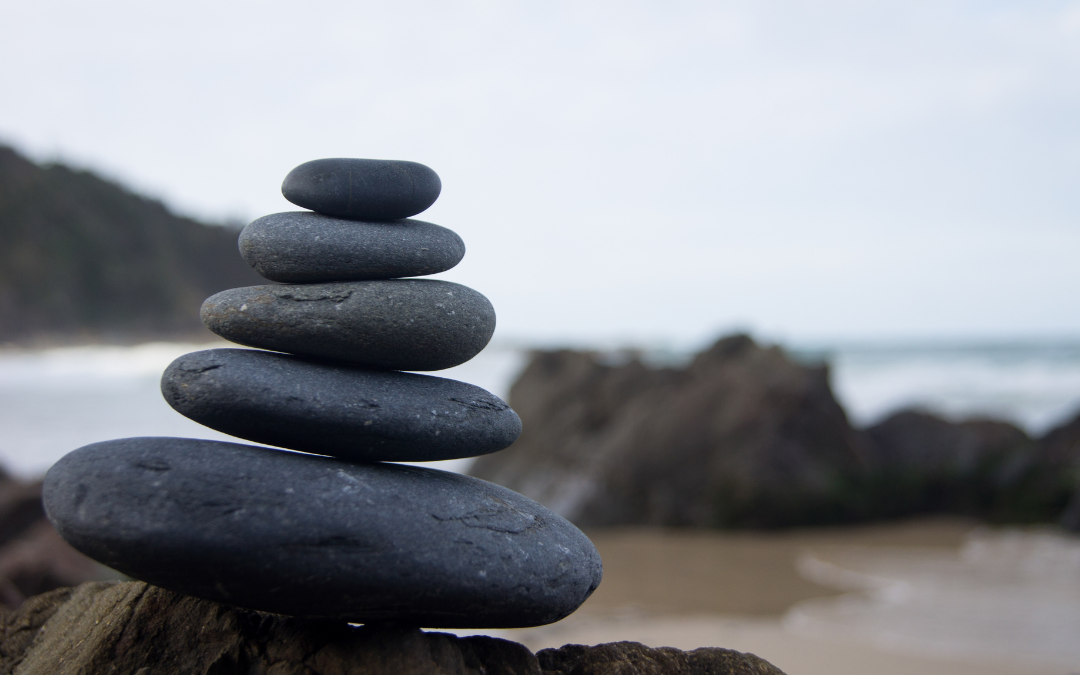What brings you joy and fulfillment? Is it your family, job, faith, or a volunteer activity? Or maybe it is a hobby like music, art, woodworking, gardening, yoga, or hiking. It might surprise us to know that what gives our life meaning can also help us live longer. When we do tasks and activities that tap into our unique gifts, it brings us a deep sense of joy and satisfaction, but we rarely stop to think about where that comes from. What exactly are we tapping into that brings about these feelings?
When we get lost in an activity, when we are overcome with emotion looking at a baby or feel a sense of awe and wonder looking up at a starry night sky, we may realize there is something beyond ourselves and our own experiences. Practicing intentional awareness of these sensations and how they give us a deeper sense of meaning and purpose is correlated with living longer, healthier lives. This can happen in the context of a faith-based practice, through our relationships with others, or by spending time in nature. It is important to note that it does not have to be through an organized religion and these practices may not be readily accessible to everyone, depending on a person’s life experiences.
Research tells us that people who have a regular spiritual practice, such as mindfulness, prayer, meditation, or participating in a faith community, are significantly healthier, living as many as 4 to 14 years longer than those who do not. According to numerous studies, spirituality is associated with improved overall health, better recovery from illness (including cancer), and is even a protective factor against disease.
What is a spiritual practice?
Spirituality, faith and religion are often used interchangeably, but they mean different things to different people. The common thread connected to better health is a regular habit of experiencing the sense that we are part of something greater. For some it can best be explained or understood in nature or in our relationships with one another. For others, this is a divinely ordered universe with a creator. Regardless, it is what gives our lives purpose and meaning. When we are living our lives in this way, we are more grateful, have greater life satisfaction and we are more resilient to the challenges and hardships we experience throughout life.
The connection between spirituality and health
Mounting research shows consistent positive associations between spiritual or religious practice and health and longevity. The correlation is so strong it led Harvard researchers to conclude, “Spirituality should be incorporated into care for both serious illness and overall health.” A study from the National Institutes of Health (NIH) indicates that having a consistent spiritual practice affects immune function, hormones, psychological functions and can prevent social isolation and increase healthy behaviors. The research is compelling and yet not often discussed in the context of public health or western medicine. There is a growing call to change that.
Many spiritual practices, such as mindfulness and faith traditions, have been around for centuries, some for thousands of years. The endurance of these traditions is a testament that they fulfill a need in many people’s lives. Things that work stand the test of time, after all. It is important to consider, however, that what works within these practices is that they orient us to the sense that there is something greater, beyond our earthly existence, beyond our individual needs and desires, that connects all of us to a sense of appreciation, belonging, and greater understanding. This is the common thread to which spiritual practices point. It is the essence of what new research on spirituality is telling us keeps us healthy and helps us attain better health outcomes when we are sick. When we live our lives with a deeper sense of purpose and meaning, we tap into something beyond ourselves, giving us hope and inspiration.
How to start a spiritual practice
Starting any new practice can be challenging, especially if past experiences have not been positive. It is important to explore what is right for you. It could be joining (or rejoining) a faith community, journaling, meditation, art, or spending dedicated time in nature. Keep in mind that spirituality goes far beyond organized religion (though that structure and tradition works well for some) and can include anything that fills you with a sense of purpose and belonging, including a spiritual network, close-knit social group, volunteering or individual practice. Think about what gives you purpose and try to dedicate just a little bit of time to it every week.
AUTHOR: Michelle Jenck, Adventist Health Tillamook Director of Community Well-Being
Sources:
Religious involvement, spirituality, and medicine: Implications for clinical practice by Mueller, Plevak, & Rummans
Spirituality, religiosity, aging and health in global perspective: A review by Zachary Zimmer
Spirituality linked with better health outcomes, patient care by Harvard School of Public Health
Religious involvement, spirituality, and medicine: implications for clinical practice by PS Mueller
More Americans now say they’re spiritual but not religious by Michael Lipka & Claire Gecewicz
Implications for public health of the religiosity-longevity relation by Marcelo Saad & Roberta de Medeiros
Other wellness questions? Email us at info@tillamookcountywellness.org. For more local health and wellness information, visit www.tillamookcountywellness.org or follow Tillamook County Wellness on Facebook and Instagram.

